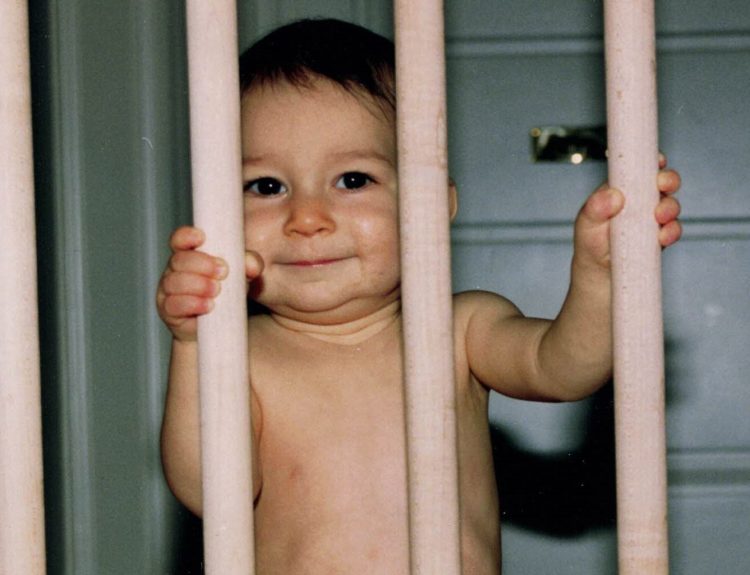My son and I had a ritual we called ‘kiss between the bars.’ I’d say ‘kiss between the bars’ and he would love to go to different spots in his crib, pucker up and we’d kiss, through the bars. That little ritual was so precious. Janet W.
WHY
We’ve talked about the power of rituals or traditions as a family. Many moms also talk about the little everyday rituals they have with their babies or children that facilitate special moments of connectivity. Like family rituals, activities we purposely repeat and sustain over time, heighten our sense of connection, create something to look forward to and create an “emotional residue” (the good kind) which gets replayed in our memories and recaptures that good feeling. They’re like family rituals but simpler, because they only involve you and your child.
What To Do (Bites)
-
Make it simple and sustainable
By definition, a ritual should have continuity, meaning it’s familiar, can exist over time and it becomes an experience that’s expected. Rather than “breaking the script,” this is something you can repeat over and over. So, it should be short and simple – especially if you’re going to be doing something with each kid. (Do the math. If it’s bedtime ritual and it takes 15 minutes, multiply that by 2 or 3, then add in bath-time and you’re screwed.)
-
Moms tended to love the sweet (often bedtime) rituals that enable an intimacy of interaction
Maybe we innately know that a calmed baby or child pre-bedtime naturally helps the transition to sleep. Whatever it is, it’s a quiet, intimate window of time that our moms coveted.
-
Make it their individual thing (or not)
There’s a lot of popular media that focuses on the ways that this 1:1 special time helps build a child’s sense of uniqueness and being loved, boosting self-esteem, and allowing them to feel known and love. There is also research on how shy kids particularly flourish with individual attention and may feel more comfortable discussing feelings and experiences in the company of one parent. However, know this is a North American thing. In other countries, the emphasis is on family unit more so than the individual. Neither is wrong. As a Cram it all in Year (CIAIY) mom, we suggest not fretting when you emphasize individual vs. family – know that both are good and feel good for you.
Tips
-
Infant: Lots of moms and dads introduce rituals that babies don’t really ‘get’ until older but they start them young. Whatever and whenever works for you. Here are a few ideas:
- Snuggling in bed before the day begins
- Snuggling, singing, reading, kissing before bed. Any or all.
- Whispers or songs of “mommy loves you, daddy loves you, puppy loves you…”
- A little massage. Cycle through body parts through the week so you’re not committing to a full massage nightly.
- Swimming in the bathtub: “My husband lets the baby ‘swim’ in the tub after his bath – he floats the baby over water and lets them (safely) flail and kick.”
- Kiss between the bars: “Yes, it sounds like I was prepping my son for a life behind bars, but we had this little game of kisses between the slats on his crib. I’d say ‘kiss between the bars’ and my son would love to go to different spots in his crib, pucker up and we’d kiss. That little ritual was so precious. We continued the tradition even when he moved from his crib.”
-
Toddler: Often, in addition to creating special moments of connection, toddler rituals do double duty by easing otherwise difficult transitions or goodbyes. Some suggestions:
- Brushing teeth together
- 3 Kisses: “We made a ritual of 3 kinds of kisses: butterfly kisses (eyelashes fluttering), nose kisses, then the real kiss – the ‘kissy kiss’.”
- Goodbye through the window: “He goes to the front window, and we blow each other kisses and give ourselves “hugs” from each other. It has me leaving on a positive note and redirects his emotions around goodbyes (I needed this just as much as he did at first!)”
- Starting the car: “Every day my son comes outside and turns on the car with my husband. It’s their special time and it helps with the transition of him going to work.”
- Special Song: Lots of kids like the predictability of a consistent, special song. You be the judge…you’ll be singing it ad nauseam. The ritual is whatever you make it; song rotation or the same one each night.
- Shared Shower: “We started taking a shower together instead of a bath because it was easier than putting her in the bath when I was pregnant. We continued this ritual once baby arrived – this one on one time is even more precious now.”
-
School Aged: In addition to continuing the rituals still sticking from the toddler years, some moms try new ones that help keep them in the know, or individually connected with their child when siblings and schedules make 1:1 time particularly difficult. For example:
- Best part of your day: “I wanted to hear more about my child’s day. Rather than an open ended question, e.g. how was your day?, which are always harder to answer, I said ‘tell me the 3 things that were great in your day.’ It both started a discussion in the positive but reinforced that good things happened. I then asked for ‘anything that wasn’t as good?’ to allow any issue to emerge. My son then mirrored the question back to me. It was something we continued for years.”
- Undivided, individual attention: “After work I spend 10 minutes of 1:1 play time per kid without a phone for full on attention – sounds small, but it’s very special time.”
- Special Tuck-in: “My dad would announce ‘special tuck-in’ and I’d run to my bed and he would ‘mummify’ me with my blanket – tucking me in super tight.
Hope you found this helpful! Got a topic you’d like some wisdom on? Let us know.




